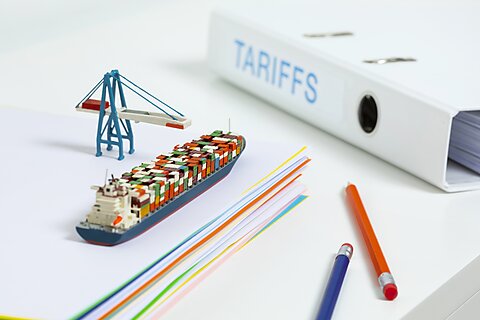On November 5, the Supreme Court will hear arguments on President Trump’s sweeping tariff policy imposed under the International Emergency Economic Powers Act (IEEPA). In the run-up, the administration insisted the tariffs are essential to conducting American foreign policy. Yet as my Cato trade colleagues and I argue in our amicus brief in the case, traditional diplomacy—not emergency tariff powers—has long underpinned America’s most significant international achievements. Far from proving an indispensable diplomatic tool, the IEEPA tariffs are actively undermining US foreign policy.
Success Without IEEPA Tariffs
The administration’s argument that an ability to impose tariffs under IEEPA is needed to effectively manage the country’s foreign affairs is belied by historical experience. For nearly 80 years, the United States—first through the General Agreement on Tariffs and Trade and later via its successor, the World Trade Organization—has responsibly stewarded the rules-based international trading system. IEEPA tariffs played no role in the formation and flourishing of this system, nor did they contribute to other major foreign policy successes since the IEEPA’s 1977 enactment.
As our brief notes:
Since 1977, for example, the United States officially ratified 538 treaties and entered into thousands of other international agreements on topics ranging from defense assistance and nuclear non-proliferation to development assistance and scientific cooperation; IEEPA tariffs were involved in none of them.[1]
The Trump administration no doubt understands this. After all, the Abraham Accords—which normalized relations between Israel and several Arab nations and are regularly cited by President Trump as a crowning foreign policy achievement of his first term—were signed without the threat of IEEPA tariffs. In fact, the president recently argued the Abraham Accords provide a framework for broader peace in the Middle East. And they’re hardly an anomaly. Other historic agreements, including the Camp David Accords, the Dayton Accords, and the Good Friday Agreement, were achieved through diplomacy rooted in shared interests and mutual benefits, not the invocation of IEEPA tariffs.
A Counterproductive Tool
The deeper flaw in the administration’s argument is that IEEPA tariffs are not just unnecessary—they are counterproductive. Take China. There’s a broad consensus that Beijing engages in abusive trade and investment practices in pursuit of broader strategic objectives. Both the Trump administration and the Biden administration recognized this challenge and sought to build coordinated economic responses with allies, including multilateral export controls on high-level semiconductors.
Yet IEEPA tariffs are fraying the very alliances the United States needs to effectively counter China’s coercive practices. As our brief observes:
Major Asian allies like India, South Korea and Japan—all skeptical of Beijing’s ambitions—have all recently sought closer economic ties with China to mitigate the harm done by the U.S. tariffs.[2] By treating allies like adversaries, IEEPA tariffs appear to be driving the very regional realignment that the United States seeks to prevent.
This is foreign policy malpractice. Alienating allies who share US concerns over a rising strategic competitor does not advance American interests but rather undermines them.
Emergency tariff powers weren’t necessary to achieve any of America’s post-1977 foreign policy and diplomatic successes, and they’re proving actively harmful to our current strategic priorities.
The IEEPA grants the president extensive powers to address genuine emergencies. But we shouldn’t pretend that rewriting the entire US tariff code and restructuring global trade relationships is anything of the sort. If the United States needs new trade tools and strategies, Congress should debate and approve them. That process is not an obstacle to US interests abroad; it’s a constitutional safeguard ensuring policy is durable, credible, and aligned with national priorities. The Supreme Court should reject the fiction that IEEPA tariffs are essential to US foreign policy when they are, in fact, weakening it.
[1] Calculation based on treaties listed in search through Congress.gov (https://www.congress.gov/search?pageSort=numberAsc&q=%7B%22source%22%3A%22treaties%22%2C%22treaty-status%22%3A%22Approved%22%7D), excluding treaties submitted by the President before 1977. (Note: The number of treaties ratified by the Senate since 1977 was reported in the amicus brief as 537. This initial calculation missed one treaty that should have been included.) ”Other international agreements” refers to non-Article II treaties, which are listed in sources like the Department of States’s annual ”Treaties in Force” report. For the latest version of this report, see https://www.state.gov/wp-content/uploads/2025/08/Treaties-in-Force-2025-FINAL.pdf.
[2] Hugh Cameron, Trump Tariffs Pushing US Asia Allies into China’s Orbit, Newsweek (Mar. 31, 2025), https://www.newsweek.com/trump-tariffs-pushing-asian-allies-toward-china-2052937; Hugh Cameron, Xi Tells Modi China and India Must ‘Come Together’ as US Tariffs Hit, Newsweek (Aug. 31, 2025), https://www.newsweek.com/china-xi-india-modi-come-together-us-trump-tariffs-2122286.
















